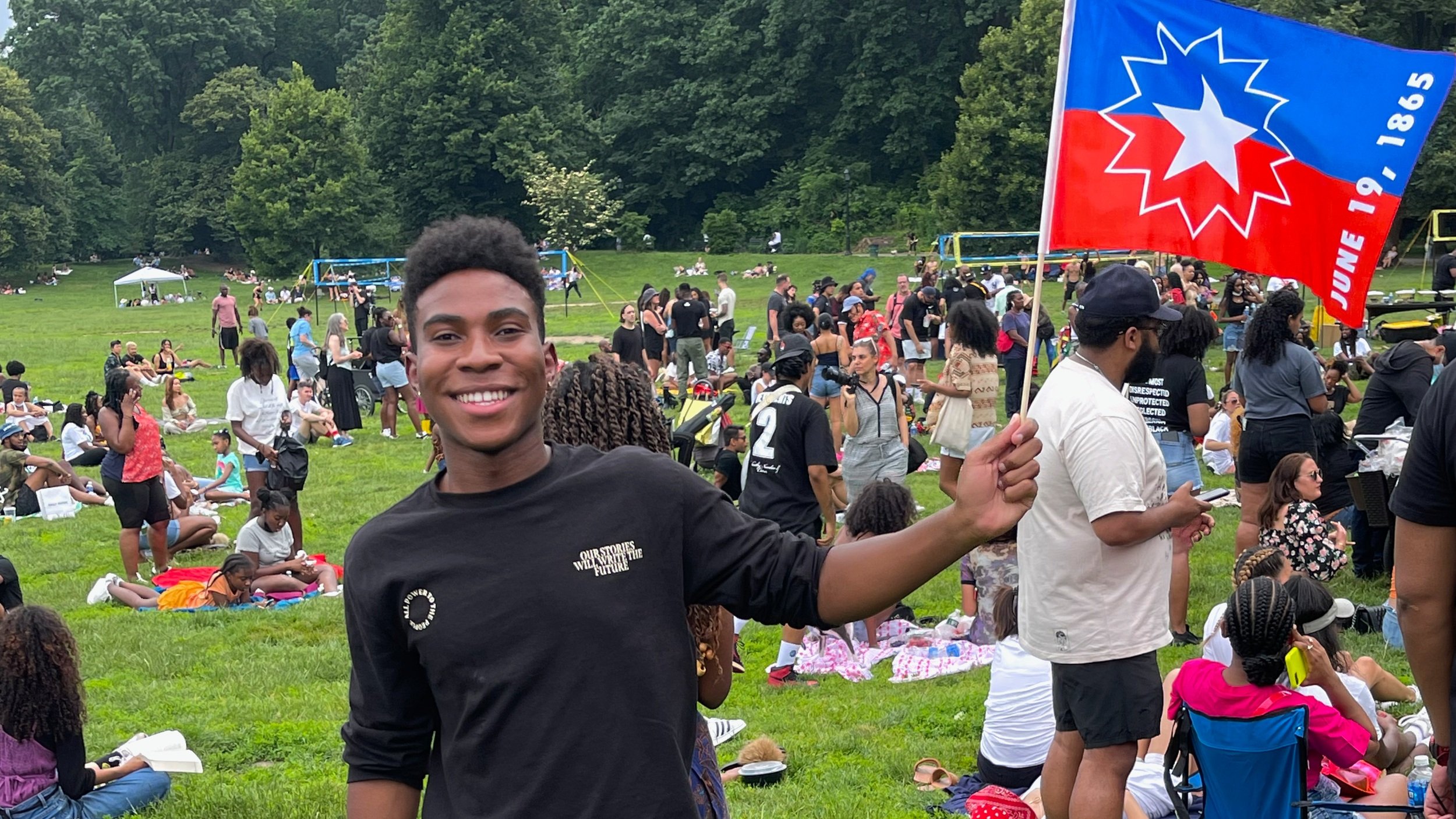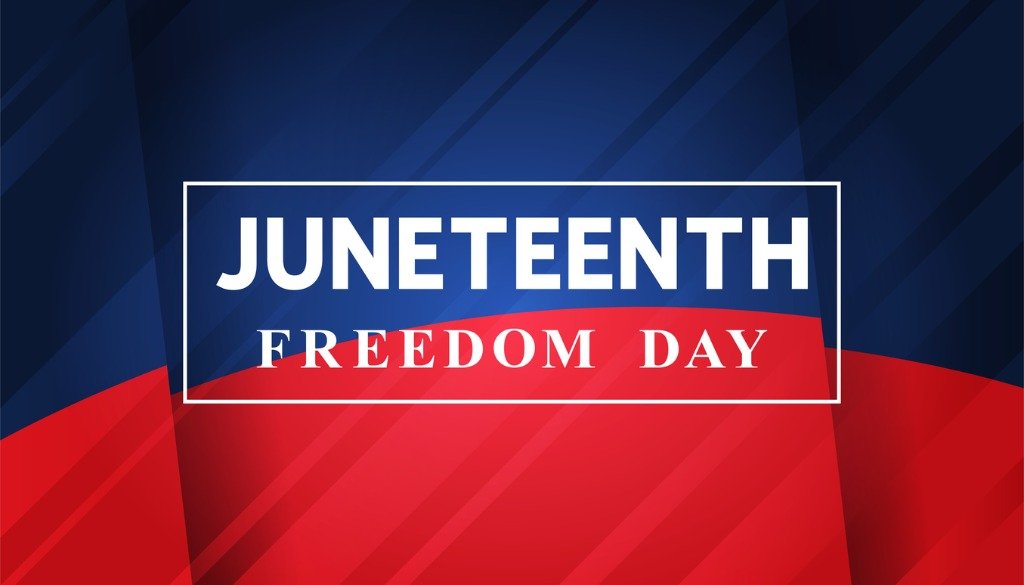How your organization can appropriately celebrate Juneteenth
Me, at a NY Juneteenth Celebration in 2021
Our newest federal holiday, Juneteenth, is undoubtedly unique …
It is the first new federal holiday since 1986. It comes from a ~150 year old Texan tradition. And it’s a holiday that many people have no idea how to celebrate.
As necessary background, the first Juneteenth was celebrated in 1865 when enslaved Black Americans were told of their freedom in Galveston, Texas. This was three years after the Emancipation Proclamation was signed. From there, the celebration spread throughout Texas, other states, and finally in 2021, it became an official holiday for the entire US.
In the same way that Christmas has a special meaning for Christians and Veterans day has a special meaning for veterans, Juneteenth holds a particular significance for those of us who descend from enslaved Black Americans*.
But what does this mean for large organizations made up of many different groups of people?
After all, aspects of racial trauma and American brutality are tied into the narrative of Juneteenth—ideas that many professionals tend to shy away from discussing.
However, Juneteenth isn’t just about slavery, it’s a celebration of the end of slavery. The holiday is about progress, values, and freedom.
Your organization should (and definitely needs to) observe Juneteenth, but it needs to do so appropriately. Here are five ideas for how you can do that:
(1) Bring in a Black-Owned Business
One great way to experience the culture that grounds Juneteenth—while showing support to its stewards—is to hire a service (or purchase products) owned by Black Americans. Serve food from local caterers, set up an event with local performers, and/or commission work by local artists. Here is a list of Black-owned business directories, but Google also makes it easy to search “black owned businesses near me” to find one that works for you.
(2) Sponsor and attend local event
Before becoming a federal holiday, Juneteenth was recognized by almost all fifty states at state or local levels. Now, there are sure to be Juneteenth celebrations all throughout the United States. Sponsor an office outing to an open or public event and contribute a donation to whatever organization (usually nonprofit) is hosting it. Again, a quick google search of “Juneteenth celebrations in *insert city*” will give you what you are looking for.
(3) Foster education and learning
Every American should work to understand what this holiday is and why it is significant. You can share a list of educational resources about Juneteenth with your teammates through whatever mass communication channels you have available . From this Smithsonian website to this book, there are no shortage of resources to include. Here is an example of an educational resource list.
(4) Invite a Speaker
As with all important topics, bringing in an expert to talk about Juneteenth is a great way to disseminate knowledge about it. This holiday is a time where it is essential to hire someone whose lived experience informs their presentation, as Juneteenth originates from a cultural celebration. The Black Speakers Collection has a list of potential experts to bring in and through my contact form, you can hire me to give a presentation about the holiday as well.
(5) Do better by Black people
It’s no secret that many jobs and business have issues with racial discrimination at various degrees. From not-so-micro microaggressions to lawsuits filed for civil rights violations, Corporate America has a long way to go before it becomes anywhere near a pillar of equality. Use Juneteenth to examine the harms your organizations might be causing to Black American communities both internal and external to your workplace. Make commitments to be accountable by both ending and redressing that harm through policy like reparations. This may be uncomfortable, but remember that slavery would not have ended through indifference and apathy and neither will racial injustice today.
You don’t have to be confused or lost for ideas when celebrating Juneteenth. Keep this blog post as a reference and share with your team to pick the ideas that you are willing to dedicate your time too.
* I often use the term Black Americans to designate Black people who descend from enslaved people in the United States. It is important to recognize that not all Black people identify as a part of this ethnic group. i.e. Nigerian-Americans or Haitian-Americans.


